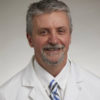| Emergency Medicine: Evidence – Based Content, Practical Applications |
| Mon Feb 20, 2023 - Thu Feb 23, 2023 |
| 7:30am-12:50pm EST |
| Lido Beach Resort, Sarasota, Florida |
| SEMLA-3720230220 |
|

Live Webinar Access Information
Webinars are held via zoom and the Wednesday prior to the conference start date, an email will be sent with the zoom link from liveadmin@ams4cme.com. If you don’t see it in your inbox please check your spam/junk folder.
Presented By
Presenter
-
Kenneth Butler (Learn More)

Associate Professor, Department of Emergency Medicine, University of Maryland School of Medicine; Associate Residency Director and Educational Director, Emergency Medicine Residency Program, University of Maryland Medical Center, Baltimore, MD -
Andrew Chang, M.D., M.S., F.A.C.E.P., F.A.A.E.M. (Learn More)

Vincent P. Verdile, MD, '84 Endowed Chair of Emergency Medicine, Vice Chair of Research and Academic Affairs, Professor of Emergency Medicine, Albany Medical College; Attending Physician, Albany Medical Center, Albany, New York -
Joel Kravitz (Learn More)

Associate Residency Director Rutgers-CMC EM Residency Program, Toms River, NJ
Course Outline
Day 1
Facial Trauma
Upon completion of this session, the participant should be able to: COMP
- Perform both a rapid screen and a thorough evaluation of the patient with facial trauma.
- Outline the challenges in securing an airway in the patient with facial trauma.
- Describe the indication for different imaging procedures for facial trauma.
- Manage injuries to the soft tissues of the face (lips, tongue, eyelids…).
Drug-Drug Interactions (DDIs)
Upon completion of this session, the participant should be able to: GL,COMP
- Assess the scope of the problem of drug-drug interactions as it pertains to both the outpatient and emergency settings.
- Explore interactions between prescription and non-prescription medications and review their treatments in the context of the Beers Criteria.
- Review common drug-drug interactions and their complications commonly seen in the emergency room.
Neuromuscular Weakness
Upon completion of this session, the participant should be able to: COMP
- Discriminate between various clinical entities causing neuromuscular weakness, including Guillain-Barré syndrome, myasthenia gravis, and others.
- Demonstrate techniques to be able to discriminate between organic and functional weakness.
- Compare and contrast upper and lower motor neuron disease.
As the World Turns: Peripheral Vertigo in the ED
Upon completion of this session, the participant should be able to: EBM,COMP
- Illustrate the pathophysiology of benign positional vertigo.
- Differentiate the various diagnostic tests in the evaluation of patients with peripheral vertigo.
- Discover how to perform various therapeutic maneuvers, such as the Epley maneuver, in the treatment of patients with benign positional vertigo.
- Identify treatment recommendations for vestibular neuritis using evidence based medicine from NEJM.
Electrolytes at Panic Levels
Upon completion of this session, the participant should be able to: COMP
- Specify common ED causes of potassium and sodium abnormalities.
- Discriminate the various therapies used to treat hyperkalemia.
- Specify the indications to administer hypertonic saline.
Day 2
Aortic Catastrophes
Upon completion of this session, the participant should be able to: GL,COMP
- Implement AAA Screening as per the systematic review of guidelines.
- Determine the Stanford classification of a particular aortic dissection based on location.
- Apply appropriate initial therapy in the patient with aortic dissection.
- Assess the risk of rupture of abdominal aortic aneurysm based on size.
The Thunderclap Headache
Upon completion of this session, the participant should be able to: EBM,COMP
- Determine characteristics suggesting a thunderclap headache.
- Construct a differential diagnosis beyond subarachnoid hemorrhage in the patient presenting with a thunderclap headache as per the ACEP clinical policy on acute headache.
- Interpret spinal fluid results in the workup of a thunderclap headache.
Ophthalmologic Emergencies
Upon completion of this session, the participant should be able to: GL,COMP
- Develop an algorithm for the differential diagnosis of the red eye.
- Create a diagnostic strategy for sudden monocular and binocular blindness.
- Review the treatment plans for emergent ophthalmic conditions, including glaucoma, and retinal vein and artery occlusions as per the American Academy of Ophthalmology preferred practice pattern guidelines.
- Develop a treatment strategy for ophthalmic trauma.
Trauma and Orthopedic Pitfalls – Injuries Not To Be Missed
Upon completion of this session, the participant should be able to: COMP
- Detect subtle injuries that, unless treated, can have impact on long term musculoskeletal function.
- Determine and treat subtle presentation of severe traumatic and neurologic injuries.
- Distinguish particular injury patterns to avoid missing correlated injuries in a traumatically injured patient.
Endocrine Emergencies
Upon completion of this session, the participant should be able to: GL,COMP
- Develop, using the latest evidence and the ADA position statement, a comprehensive treatment plan for diabetic ketoacidosis (DKA).
- Compare and contrast DKA and hyperosmolar non-ketotic states (HHNK)
- Detect adrenal insufficiency and formulate an efficient treatment plan.
- Construct treatment algorithms as per the AACE guidelines, for the management of thyrotoxicosis, hyperthyroidism and thyroid storm.
Day 3
Is This Test Necessary: Efficient Use of Testing in the Emergency Department
Upon completion of this session, the participant should be able to: GL,COMP
- Develop, using the available evidence, efficient decision making skills for the use of some commonly used lab & radiographic tests in the ED as per the COC guidance and recommendations.
- Determine the utility of some less commonly used tests in the ED, including strep tests, D-dimers and coagulation tests.
- Evaluate case scenarios to discuss optimizing patient care while reducing unnecessary costs.
Management of the Emergency Psychiatric Patient
Upon completion of this session, the participant should be able to: GL,COMP
- Recognize the early signs of agitation and employ strategies to resolve them.
- Select appropriate agents for chemical restraint based on available evidence.
- Using ACEP guidelines as a framework, develop a plan for the medical clearance of a psychiatric patient.
Bedside Sedation
Upon completion of this session, the participant should be able to: GL,COMP
- Analyze patient characteristics and clinical presentations where the most important risk is for apnea.
- Debate pulse oximeter and wave form capnography – do we need it?
- Assess and specify when sedation is an appropriate consideration for the critically ill.
- Employ the use of sedation in the head injured patients as per the Clinical Practice Guidelines for emergency department use of Ketamine.
Being “Hip” on Ortho
Upon completion of this session, the participant should be able to: EBM,COMP
- Assess if this is just another “found down” patient.
- Identify which fractures have the highest “missed” rate.
- Determine when ultrasound is better than a plain film.
- Using evidence based medicine from NEHM, identify indications for fasciotomy.
Chest Pain in the Emergency Department – Value of Heart Score
Upon completion of this session, the participant should be able to: COMP
- Who should we heart score – Appraise which patients we should heart score in the ED.
- Do risk factors matter –identify specific risk factors that are significant and will change your approach to the patient with chest pain using the HEART Score of the European Society of Cardiology.
- What is the incidence of a missed MI – assess the incidence of a missed MI in patients discharged from the ED.
- Determine when stress testing is most appropriate – where are we today with a stress test.
- What about a slightly elevated troponin – interpret how a slightly elevated troponin will affect your care and a patient’s disposition.
Day 4
Sick Trauma Patient in the Non-Trauma Center
Upon completion of this session, the participant should be able to: EBM,COMP
- Recognize why we no longer follow the hematocrit and understand the utility of serial lactates in the trauma patient.
- Detect subtle risks and signs in a retroperitoneal bleeding patient.
- Distinguish who gets permissive hypotension and who should not.
- Identify the risk of hypotension and what it means in traumatic brain injury using evidence base medicine from JAMA surgery.
- Utilize antifibrinolytics in bleeding patients for medical transport.
Traumatic Brain Injury
Upon completion of this session, the participant should be able to: COMP
- Develop an approach to assessing the head injured patient where you can forget about the GCS scoring system.
- Identify the TBI clinical presentation where “the eyes have it.”
- Determine when TBI necessitates a “formal” RSI intubation.
- Employ appropriate RSI techniques and drug protocols as per sited evidence based medicine recommendations and systemic reviews.
The High-Risk Abdomen you Cannot Afford to Miss
Upon completion of this session, the participant should be able to: COMP
- Identify clinical presentations and findings that should alert you to not being fooled by a negative test.
- Develop clinical strategies that will enable you to think outside the abdominal “black box.”
- Determine how one simple bedside test can save a life.
Abdominal Pain – The Black Box of the Belly
Upon completion of this session, the participant should be able to: GL,COMP
- Review some challenging cases of abdominal pain to help differentiate benign from severe abdominal pain.
- Evaluate the utility of various tests, including labs, ultrasound and CT scan, including during pregnancy using the ACOG opinion guidelines, in the diagnosis of abdominal pain.
- Determine subtle features of certain presentations of abdominal pain that suggest a more severe cause.
- Explore diagnoses of abdominal pain in the absence of abdominal pathology.
Coagulopathy in the ER: All Bleeding Stops Eventually
Upon completion of this session, the participant should be able to: COMP
- Differentiate different patterns of coagulopathy that present to the ED.
- Develop an evaluation and treatment plan for non-traumatic bleeding disorders in the ED, including hemophilia, TTP, ITP and others.
- Outline the rationale and indications for the use of blood products used in the treatment of the bleeding patient.
- Discuss some of the newer anticoagulation agents used today, such as Prasugrel (Effient) and Dabigatran (Pradaxa), as per the referenced RCT’s and EBM studies such as Rocket, RE-LY and Einstein.
Accreditation
AMA
American Medical Seminars, Inc. designates this live activity for a maximum of 20 AMA PRA Category 1 Credits™. Physicians should claim only the credit commensurate with the extent of their participation in the activity.
Venue
Lido Beach Resort, Sarasota
Florida
34236
United States

Beautifully situated upon a private white sand beach near Siesta Key, the Lido Beach Resort is the perfect destination to experience the relaxed culture and natural beauty of Florida’s Gulf Coast. Our Sarasota luxury resort invites you to kick back and take in the picturesque views from our 300-foot white sand beach, enjoy a refreshing swim in our two year-round heated pools (one for families and one for adults only), and indulge with an array of resort amenities ideal for romantic weekends, family vacations and relaxing Gulf-front getaways.
Accommodations
Hotel reservation:
Hotel Reservation Link
To arrange your stay, please use the above “Hotel Reservation Link.” The special room rate will be available on a first come first serve basis until the group block is sold-out.
-
- Register by January 19, 2023 to take advantage of preferred rates.
- Save $9 on reduced resort fee. Reduced from $29 to $20 per room, per day.
- Free self-parking for AMS guests.
- Automatic raffle entry with registration.
Rent a Car with Enterprise or National:
Enterprise/National
To book your CME conference car rental and to receive special rates exclusively for AMS attendees, you may call or book online with our contracted companies.
Things To Do
Immerse Yourself In Sarasota
Let us help with your area attractions and things to do. As one of the top family vacation destinations in America, Sarasota is renowned for its cultural and environmental amenities. Not only are we home to the #2 beach in the United States as voted by TripAdvisor in 2022, but Sarasota is a mecca for patrons of the arts and has the highest concentration of Zagat® rated restaurants in Florida. It’s no wonder Sarasota was ranked one of the Top 100 Best Places to Visit in Florida in 2022 by US News and World Report.
Sarasota offers a truly impressive blend of leisure, shopping, remarkable cuisine and popular attractions. As Florida’s cultural capital, you can’t go wrong with our museums, plays, symphony, or Sarasota’s very own opera house.
So sail into a breathtaking sunset, golf on lush green fairways, explore unspoiled fishing waters or just relax and sink your toes into the finest beach sands in the world.
If you’re not grabbing your sunblock already, keep reading about all that Sarasota has to offer.
Sarasota Beaches
With numerous beaches to choose from, the most notable being Siesta Key Beach with its quartz crystal, powdered sugar white sand. For those who prefer to go shelling, try out Lido Key or take a short drive to Venice Beach to hunt for fossilized shark’s teeth.

Area Attractions
From aquariums to a spring training baseball game and botanical gardens to airboat tours of gators in their natural habitat, there is something for everyone! Make sure you check out the events calendar for annual traditions including our very own Chalk Festival and the Siesta Key Master Sand Sculpture Contest.

Dining
Whether you prefer fine dining, beachfront or lighter fare, Sarasota has the highest concentration of Zagat® rated restaurants in Florida. Our award-winning dining overlooks world-class beaches, and stunning skylines, and fills downtown Sarasota. Many offer outdoor dining that can be enjoyed year-round!

Arts & Culture
The historical John and Mable Ringling Museum of Arts is the state art museum of Florida. These palatial grounds are home to a world-renowned collection of Rubens, the Circus Museum, Ca’d’Zan, Ringling’s Mansion, and Bayfront Gardens. You will also find the historic Asolo Theater on the premises. But that’s not all, Sarasota’s performing arts rival those of much larger cities.

Sports & Outdoor Activities
Voted as 2014’s Best Sport Friendly Vacations Destination by Sports Events Magazine, Sarasota and the surrounding area has over 25 golf courses, a world-class aquatics, and rowing facility, and one of the largest polo clubs in the country! Whether paddle boarding in the Sarasota Bay or running the Legacy Trail, you’re sure to find something that gets your heart racing!

Shopping
Whatever your shopping preferences are, Sarasota has something to suit your needs. Spend the afternoon in historical St. Armand’s Circle, visit the Ellenton Outlet Mall just 20 minutes North or enjoy our newest addition- the high-end shops of University Town Center (more than 100 stores).

AMS Cancellation Policy: American Medical Seminars has implemented a Worry-Free Cancellation policy. Written cancellations received 30 or more days prior to the conference start date will be eligible for a full refund of the registration fee paid. Cancellations received less than 30 days, please send an email to mail@ams4cme.com asking to be switched to a future conference. We are happy to transfer you to any conference scheduled to take place within the next two years. Even if you are not yet sure which conference you wish to attend. If you are an international attendee and need to cancel the seminar after an Invitation Letter has been sent, there is a $150.00 cancellation fee.
Disclaimer: In the event that AMS is required to cancel a live conference, registrants will receive a full refund within 7 business days. AMS is not responsible for charges associated with cancelled flights or hotel rooms.



